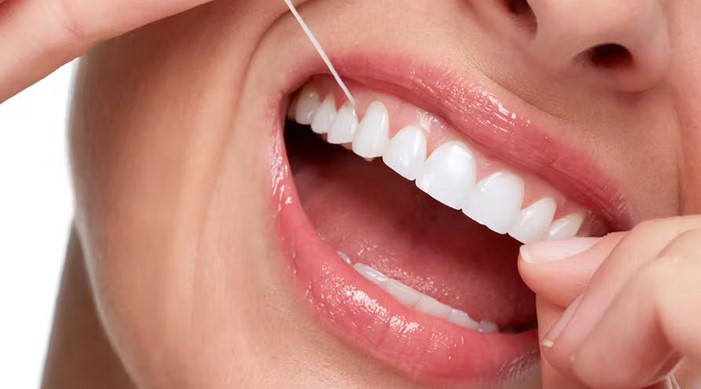
Maintaining optimal oral health is crucial for overall well-being. One common issue that many people face is the development of sores on the gum line. These painful and uncomfortable sores can make it difficult to eat, speak, and even smile. Fortunately, there are several effective strategies you can implement to prevent these sores and promote excellent gum health.
Understanding Gum Sores: Causes and Symptoms
Gum sores, also known as gum ulcers or canker sores, can manifest as small, round, or oval lesions on the gum line. These sores can be white, yellow, or gray in color, with a red border. They often cause discomfort, ranging from a mild burning sensation to more intense pain. While the exact cause of gum sores isn’t always clear, several factors can contribute to their development.
Causes of Gum Sores:
1. Trauma: Accidental trauma to the gum line, such as brushing too vigorously or biting down on hard foods, can create small lesions that lead to sores.
2. Stress: Emotional stress and anxiety can weaken the immune system, making it easier for sores to develop.
3. Nutritional Deficiencies: A lack of essential nutrients, especially vitamin B12, iron, and folic acid, can increase the risk of gum sores.
4. Hormonal Changes: Hormonal fluctuations, such as those during menstruation or pregnancy, can make gums more susceptible to irritation and sores.
5. Underlying Conditions: Certain medical conditions like celiac disease, inflammatory bowel disease, and autoimmune disorders can contribute to the development of gum sores.
Preventive Tips for Optimal Gum Health:
1. Practice Good Oral Hygiene: Regular brushing and flossing are the foundation of maintaining healthy gums. Use a soft-bristle toothbrush and gentle, circular motions to clean both your teeth and gum line. Flossing removes food particles and plaque from between the teeth and along the gum line, reducing the risk of irritation.
2. Use a Gentle Mouthwash: Opt for an alcohol-free, antimicrobial mouthwash to help prevent bacterial growth and reduce inflammation in the gum area. Rinsing with a mild saltwater solution can also provide relief and promote healing.
3. Choose a Balanced Diet: A well-rounded diet rich in vitamins, minerals, and antioxidants supports overall oral health. Incorporate foods high in vitamin C, such as citrus fruits, strawberries, and bell peppers, as they help in tissue repair and gum health.
4. Stay Hydrated: Drinking plenty of water helps maintain saliva production, which plays a crucial role in protecting the gums and preventing dryness and irritation.
5. Manage Stress: Engage in stress-reducing activities like meditation, yoga, or deep breathing exercises. By managing stress, you can help strengthen your immune system and reduce the likelihood of gum sores.
6. Avoid Irritants: Be cautious with spicy, acidic, and salty foods that can irritate the gum line. Additionally, cut down on tobacco and alcohol consumption, as they can contribute to gum irritation and compromise oral health.
7. Choose the Right Toothpaste: Opt for toothpaste without sodium lauryl sulfate (SLS), which can be harsh on the gums and lead to irritation. Look for toothpaste with natural ingredients that promote gum health.
8. Regular Dental Check-ups: Schedule regular dental visits for professional cleanings and examinations. Your dentist can identify early signs of gum issues and provide personalized recommendations for maintaining gum health.
9. Address Oral Health Issues Promptly: If you notice any signs of gum sores or discomfort, don’t delay seeking dental attention. Early intervention can prevent the issue from worsening.
10. Proper Denture Care: If you wear dentures, ensure they fit well and clean them regularly. Ill-fitting dentures can cause friction on the gum line, leading to sores.
When to Seek Professional Help:
While many gum sores can be managed at home, there are situations where professional intervention is necessary. Consult a dentist if:
– The sores are persistent and don’t heal within a week or two.
– The sores are unusually large, painful, or recurrent.
– You experience bleeding, swelling, or pus around the sore.
– You have difficulty eating, drinking, or speaking due to the sores.
– The sores are accompanied by fever or other systemic symptoms.
A dentist can accurately diagnose the cause of the sores and recommend appropriate treatment options, which may include topical medications, mouth rinses, or other interventions.
In Conclusion:
Preventing sores on the gum line requires a combination of proper oral hygiene, a balanced diet, stress management, and regular dental care. By following these preventive tips, you can significantly reduce the risk of developing gum sores and maintain optimal oral health. Remember, a healthy smile contributes not only to your physical well-being but also to your overall confidence and quality of life.